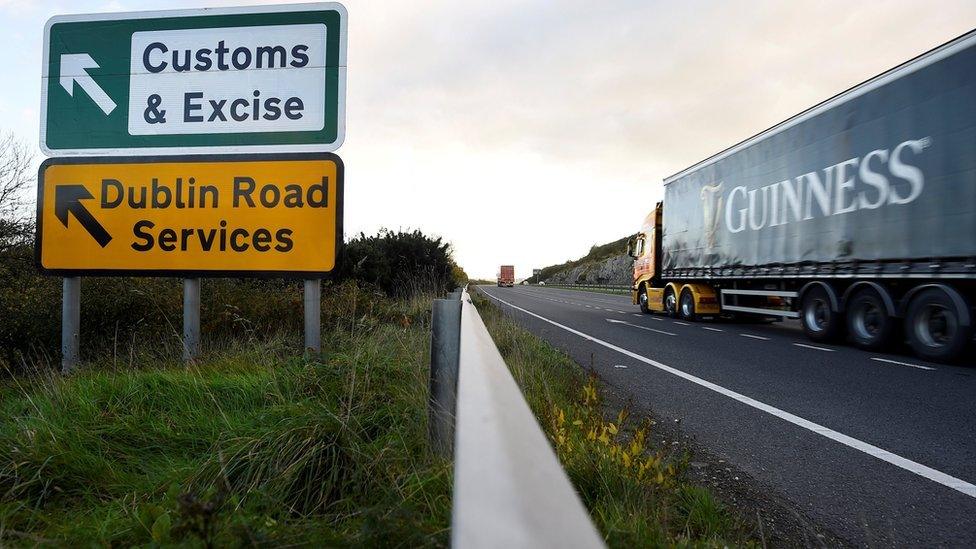Irish border: UK expert panel to advise on post-Brexit arrangements
- Published
- comments
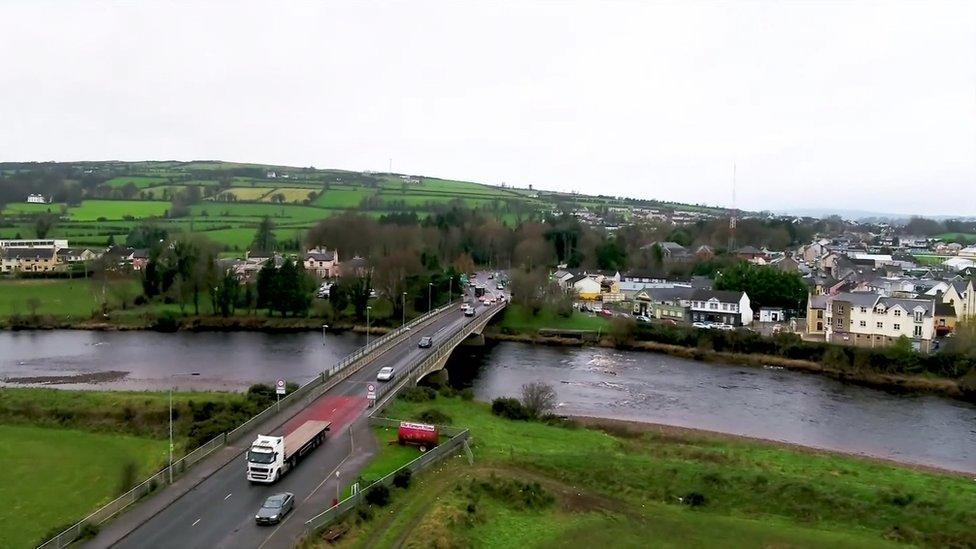
The aim is to keep border crossings like this one at Strabane/Lifford free of checkpoints
The UK government has appointed a panel of experts to advise on alternative arrangements for the Irish border after Brexit.
Alternative arrangements refers to ways of maintaining a soft border without close regulatory alignment between the UK and the EU.
It is normally used to refer to technical or technological solutions.
Some Brexit supporters believe these solutions could be used to replace the controversial backstop.
A group of Brexit-supporting MPs has already set up its own alternative arrangements commission which is due to report on Monday.
However, the government group has a more diverse membership including people from Northern Ireland.
It includes assistant chief constable Tim Mairs from the Police Service of Northern Ireland (PSNI) and Katy Hayward from Queen's University, Belfast.
There are also representatives from Northern Ireland business groups.
It will be chaired by Brexit Secretary Steve Barclay and Financial Secretary to the Treasury Jesse Norman.
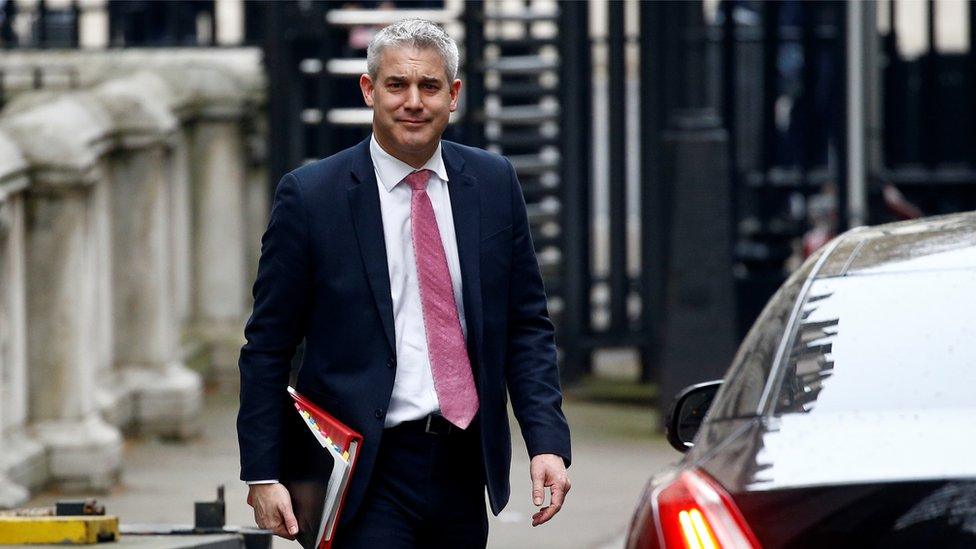
Steve Barclay said working out post-Brext border arrangements was an "absolute priority"
"There has been considerable debate about the alternative arrangements that could be put in place to replace the backstop, including how we could harness the power of cutting-edge technologies, trusted trader schemes, and IT systems," Mr Barclay said.
"There has also been shared recognition by both the UK government and the EU Commission that this work must be an absolute priority as we shape the future partnership.
"The technical group will provide a forum for experts to discuss workable alternative arrangements, assessing both capability and timelines and bringing their significant experience to bear."
The British government and the EU have agreed there should be no hardening of the Irish border after Brexit.
However, that will be difficult if the UK sticks to its red lines of leaving both the Customs Union and the Single Market.
For countries outside those arrangements, the EU normally imposes a range of border checks to enforce customs and product standards.
Some Brexit supporters believe they can square the circle of an open border and a loose relationship with the EU by using technology and other techniques to manage the border.
The EU has committed to exploring alternative arrangements once a Withdrawal Agreement is passed.
However, EU officials and the Irish government are sceptical about whether any of these that will be enough on their own to maintain a soft border.
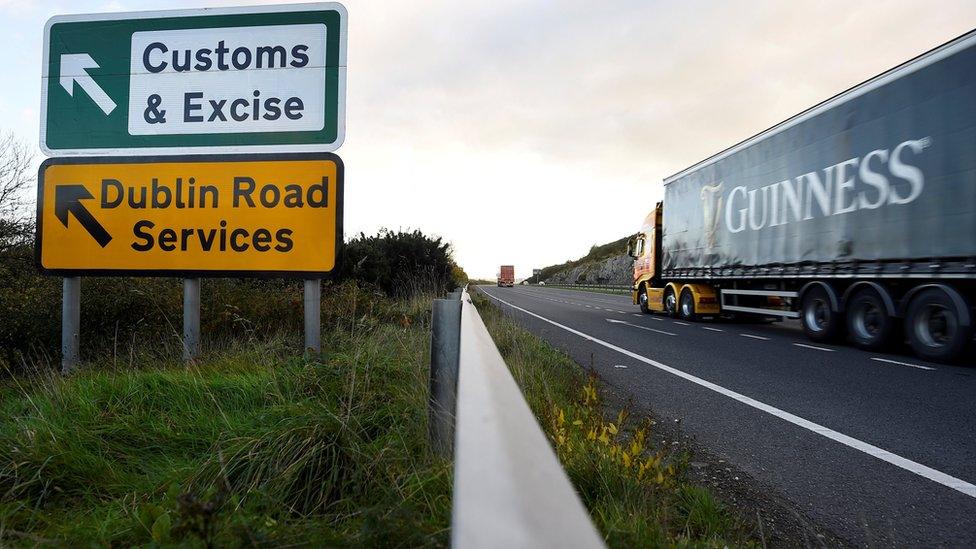
Meanwhile the EU is due to publish its version of a 'mapping exercise' which identifies which areas of north-south cooperation are enabled by EU law and policy.
The EU and UK carried out this work jointly in late 2017.
The UK government published its version in December 2018.
The dozens of areas of cooperation include agriculture, environment, health and transport.
The EU concludes that the exercise shows that "many areas of North South cooperation have either expressly relied upon or have been significantly enabled by the overarching EU legal and policy framework".
EU leaders are gathering for a summit in Brussels today but Brexit is not expected to form a major part of their discussions.
Instead they are focusing on making appointments to the EU's most powerful positions such as president of the Commission.
The Taoiseach Leo Varadkar is expected to meet the EU's chief Brexit negotiator, Michel Barnier, ahead of the summit.
- Published20 June 2019
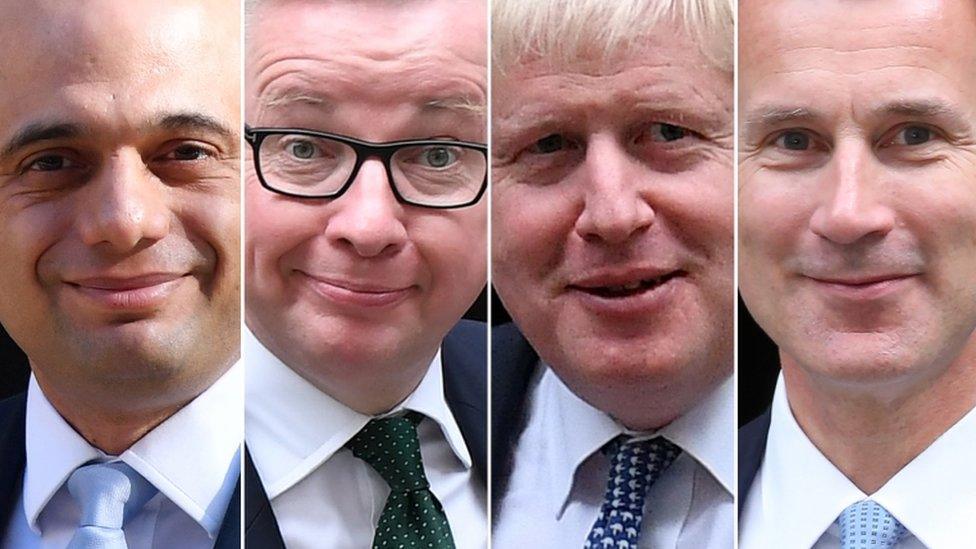
- Published16 October 2019

- Published11 June 2019
